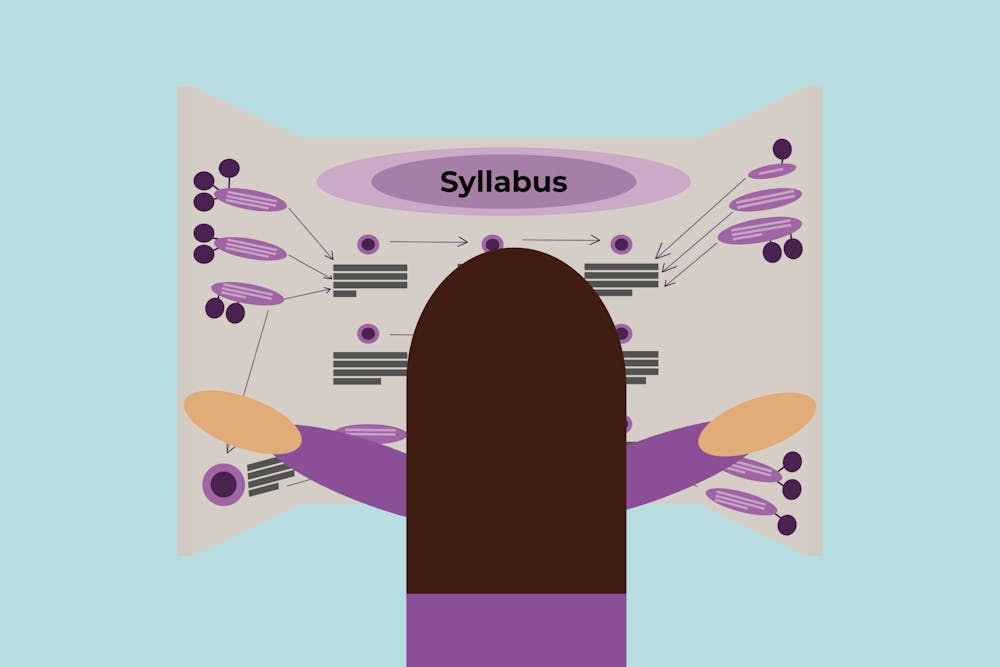USC alumnus Thomas Lentine always planned on becoming a doctor until he decided against it during his second year of undergrad. Amidst deciding on his next steps in graduate school, a simple spreadsheet he used to track his habits led to his current startup, UpAhead, which helps college students organize their syllabi and keep track of their assignments.
Upahead.online launched on Jan. 10, 2025 and has almost 500 users registered from 35 different universities. The software extracts all the due dates of graded assignments from a student's uploaded syllabi and organizes them in one place.
“(UpAhead) saves students and people like me who would spend hours making spreadsheets or getting organized every semester," Lentine said. "That takes them a few seconds now."
The idea started with Lentine’s love for spreadsheets, which he used in college to monitor his behavior, he said. He created a points system, earning points for good behavior such as meditation and losing them for bad behavior such as spending too much time on his phone. Doing this, Lentine said he saw a complete change in his habits.
During his fourth year of undergrad at USC, Lentine started creating spreadsheets for his friends. His side hustle only grew from there, evolving into a full-time job that he was initially hesitant to embrace. Now, Lentine loves all the jobs he gets to do as a startup founder and hopes to encourage others to make the leap he eventually did, he said.
"I just didn't know that entrepreneurship was really an avenue that I could take," Lentine said. "So whenever I'm able to go out to campus organizations — or even, I've given guest lectures at a couple classes, I'm always very keen to say ... 'You can make your own (path), chart your own path.'"

One of Lentine's initial clients is third-year sports and entertainment student Corey Minkoff.
“When I joined college I didn’t know exactly how to stay organized or how to schedule or manage my time better,” Minkoff said. “When (Lentine) came out with this idea and told me about it, I was like, ‘Yeah, it's definitely something I would give a shot.’”
Minkoff did not arrive at USC with the skills he soon realized he would need to succeed, he said.
“In high school, I was always one of those kids who just floated along (doing) what I needed to do in order to pass,” Minkoff said. “And then when I got (to USC), I realized that that wasn't going to work. You can't really just float around in college — you have to be ahead of what you're doing.”
Minkoff often had to cancel plans to complete a forgotten assignment or turn in his work late, he said. With UpAhead, however, Minkoff has the peace of mind that he is not missing anything, he said. Not only that, but UpAhead has helped Minkoff improve his GPA as well.
“The last … three or two semesters have been my best two or three semesters I've had since I've been in college, and it's probably during the harder ones too, as opposed to taking the core classes,” Minkoff said.
Lentine’s primary goal with UpAhead is to help students take advantage of all that college has to offer outside of the classroom by helping them manage their time more effectively when it comes to academics, he said.
Fourth-year psychology student David DeBiasi said he has found that UpAhead helps with just that.
"As a college student, you feel incredibly busy," DeBiasi said. "You don't want to take the time to explore, but if you have the ability to realize how much time you actually have, I think you're way more likely to look externally and really make the most of college.”
For second-year finance and accounting student Mason Mondora, combing through all his syllabi to extract deadlines was not worth the time. In high school and when he first got to college, Mondora relied on keeping track of everything he had to do by memory, which led to stress over deadlines and missing assignments, he said.
When Lentine gave a presentation to Mondora's fraternity chapter, of which Lentine was previously president, the platform seemed like what Mondora needed to get back on track, he said. Through UpAhead, Mondora no longer faces that frustration as he has everything laid out.
If something were to change, such as a due date, users can update it on the UpAhead website. And in the case of an entire syllabus being updated, users can reupload the new version and have the program revise all necessary deadlines.
Lentine has been traveling to college campuses around the country to promote the platform. He is also utilizing social media to market UpAhead and is in the process of hiring ambassadors and content creators.
Lentine is excited about new features coming soon including a grade calculator and grade projector as well as the possibility of expanding UpAhead into a more comprehensive platform, he said.
“(Eventually UpAhead) will sync up with McGraw Hill and Top Hat and all the websites, as well as Blackboard. We're working on Google Calendar integration right now,” Lentine said.
An app version of the website is also in the works and is on track to be available in Fall 2025.
Students interested in UpAhead can learn more at upahead.online.
Correction: The timeline of Thomas Lentine's creation of UpAhead was updated for accuracy.

